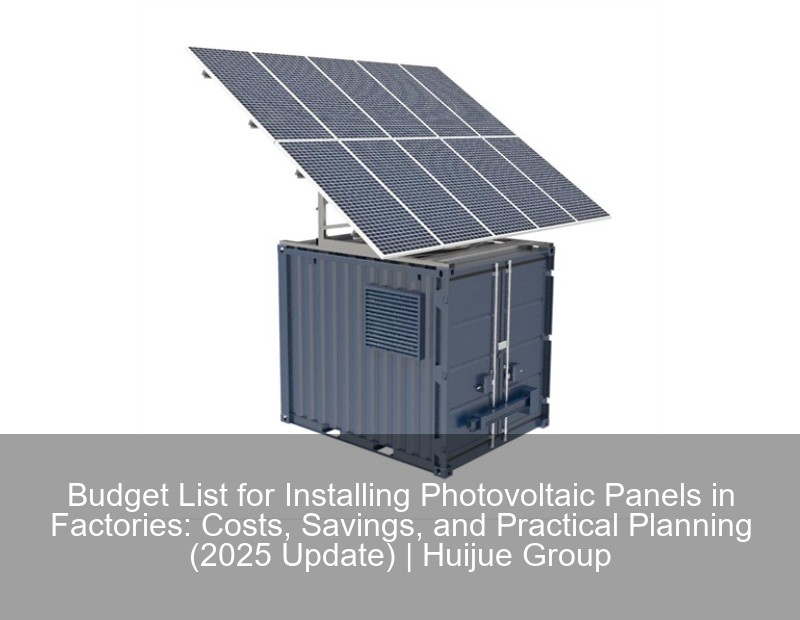Budget List for Installing Photovoltaic Panels in Factories: Costs, Savings, and Practical Planning (2025 Update)

Why Factories Overpay for Solar Installations - And How to Fix It
Did you know 43% of industrial solar projects exceed initial budgets by 15-30%? Understanding photovoltaic panel installation costs isn't just about getting numbers right - it's about securing your factory's energy independence while avoiding financial pitfalls. Let's break down what really matters in 2025 solar budgeting.
The Hidden Cost Traps in Industrial Solar Projects
- ⚡ Component price fluctuations (up 12% since Q4 2024)
- ⚡ Roof structural upgrades (often 8-15% of total costs)
- ⚡ Grid connection fees (varies by state)
2025 Photovoltaic Installation Cost Breakdown
| Component | Price Range | % of Total Cost |
|---|---|---|
| High-efficiency panels (550W) | $0.28-$0.33/W | 40-45% |
| Industrial inverters | $0.10-$0.15/W | 12-18% |
| Structural engineering | $1.50-$4.00/sq.ft | 8-15% |
"Wait, no - that's not the whole story," says solar consultant Mark Wei. Labor costs have dropped 7% nationally since new OSHA training protocols were implemented in January 2025, but material lead times remain unpredictable.
Regional Cost Variations: Where to Save
- Southwest: 14% lower structural costs (concrete vs. steel roofs)
- Northeast: 22% higher winter installation fees
- Midwest: $0.04/W subsidy through "Solar Belt Initiative"
Case Study: How AutoPlant LLC Saved 23%
This Michigan manufacturer achieved $147,000 first-year savings through:
- Bulk purchasing consortium membership
- Time-shifted installation (non-peak months)
- Hybrid microinverter system
Emerging Tech That Changes the Math
New bifacial panels generate 19% more power in racking configurations - but require 7% wider spacing. Is your roof space optimized for 2025 tech?
Budget Planning Checklist
✅ Get structural analysis before panel selection
✅ Account for 2025 ITC tax credit changes
✅ Include 3% contingency fund
✅ Verify local grid upgrade requirements
Remember: The cheapest bid often costs 17% more long-term according to SolarTech's 2024 failure analysis. Quality matters when your production line depends on consistent power.
Pro Tip: The 80/20 Rule of Solar Procurement
Focus 80% of negotiation energy on:
1. Panel degradation warranties
2. Weather-related delay clauses
3. Production guarantees